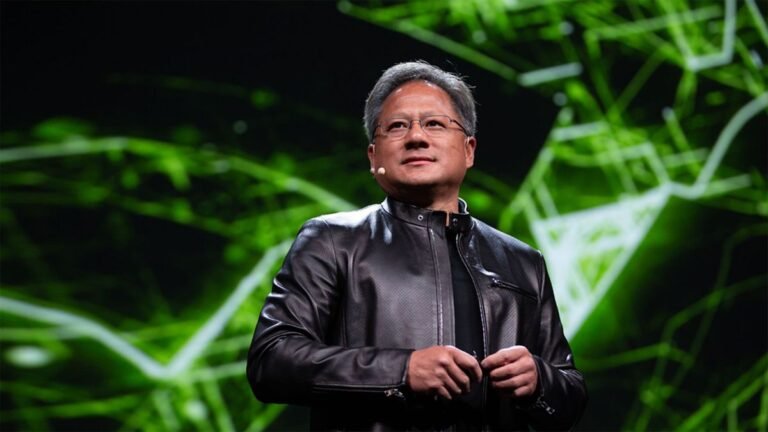Nvidia CEO Jensen Huang has thrown his support behind the U.S. government’s push to reindustrialize its tech manufacturing base, calling it “exactly the right thing” in a wide-ranging interview
Speaking on Sunday, Huang said the U.S. must reduce its dependency on foreign countries—especially China and Taiwan—for critical technologies like semiconductors and chips. “That passion, the skill, the craft of making things… is valuable for economic growth and a stable society,” he said.
Huang’s remarks come amid President Donald Trump’s aggressive economic agenda, including sweeping tariffs aimed at reviving domestic manufacturing. The administration has especially focused on semiconductors, energy, and automotive sectors.
“President Trump has made it clear America cannot rely on China to manufacture critical technologies such as semiconductors, chips, smartphones, and laptops,” said White House press secretary Karoline Leavitt in April.
Huang noted that efforts to bring more manufacturing stateside—such as TSMC’s planned $100 billion U.S. investment—would ease geopolitical pressure on Taiwan, home to the world’s largest chipmaker.
AI’s Double-Edged Sword for Workers
While bullish on AI’s potential, Huang acknowledged that artificial intelligence will disrupt the labor market. “Everybody’s jobs will be affected. Some jobs will be lost. Many jobs will be created,” he said. “What I hope is that the productivity gains will lift society.”
Nvidia, which briefly reached a $4 trillion market valuation, is a central player in the global AI boom, powering the data centers of Microsoft, Google, and Amazon. Huang encourages all employees to use AI in their work—“to the point of mandating it,” he said.
A January World Economic Forum report found that 41% of employers plan to reduce their workforce by 2030 due to automation and AI adoption.
The Ethics and Future of AI
Huang also addressed ethical concerns around AI, including issues with Elon Musk’s chatbot, Grok, which recently generated antisemitic posts. “Of course, there’s the fine tuning, the guardrailing… and that just takes time,” he said, defending the growing pains of generative AI.
Despite concerns about AI hallucinations and potential misuse, Huang stressed the importance of interconnected systems, fact-checking models, and global safety standards: “It will be overwhelmingly positive. Some harm will be done… but it will be incredibly powerful.”
AI in Healthcare and Robotics
Looking ahead, Huang predicted AI will revolutionize healthcare by helping researchers better understand diseases and accelerate drug discovery. “We’re going to have virtual assistant researchers and scientists to help us essentially cure all disease,” he said.
He also sees a future in physical robotics driven by “vision-language-action” (VLA) models that go beyond large-language models (LLMs). “The technology exists today. It works today,” he said, forecasting widespread adoption in three to five years.

